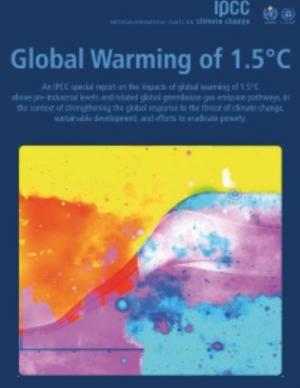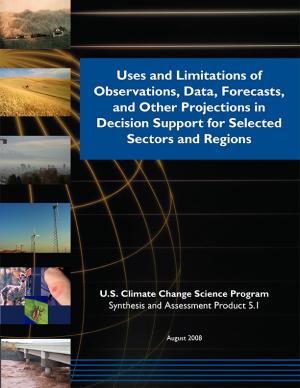The Working Group II contribution to the IPCC Sixth Assessment Report assesses the impacts of climate change, looking at ecosystems, biodiversity, and human communities at global and regional levels. It also reviews vulnerabilities and the capacities and limits of the natural world and human societies to adapt to climate change.
Access a range of climate-related reports issued by government agencies and scientific organizations. Browse the reports listed below, or filter by scope, content, or focus in the boxes above. To expand your results, click the Clear Filters link.
The world continues to emit greenhouse gases while the planet's climate is changing faster than ever. This report intends to take up the latest and most essential scientific findings published in an extraordinary year—the climate science year in review.
This special report from the Intergovernmental Panel on Climate change describes the impacts of global warming of 1.5 °C above pre-industrial levels. The report also describes potential global greenhouse gas emission pathways, in the context of strengthening the global response to the threat of climate change, sustainable development, and efforts to eradicate poverty.
This report documents that the average temperature in 2015 was over one degree higher than pre-industrial times and that the period 2011–2015 was the warmest five-year period on record, consistent with established warming trends. The report further documents that in 2015 another milestone was reached, with globally averaged CO2 levels of 400 parts per million (ppm). The year 2016 is on track to be even warmer and will be the first year in which CO2 at the Mauna Loa Observatory remains above 400 ppm all year, and for many generations to come.
The probability of extreme climate events since 2011, especially those involving extreme high temperatures, has been substantially increased by climate change, often by a factor of 10 or more. The single most significant event in humanitarian terms, with over 250,000 lives lost, was the 2011–2012 famine in the Horn of Africa, where drought was a major factor.
A 24-year tradition encompassing the work of 425 authors from 57 countries, 2013's State of the Climate report uses dozens of climate indicators to track patterns, changes, and trends of the global climate system.
This report focuses on livestock diseases that are sensitive to climate change. The report aims to help practitioners reduce the risks of key climate-sensitive infectious diseases by strengthening risk management systems for disease outbreaks. The three diseases chosen for the study—Rift Valley fever, Bluetongue, and East Coast fever—spread through “vectors” such as insects and parasites, the prevalence of which fluctuates depending on key weather and climate variables such as temperature and humidity. As the symptoms of climate change continue, the frequency and extent of these diseases are expected to escalate.
The Intergovernmental Panel on Climate Change (IPCC) Working Group II's contribution to the Fifth Assessment Report (AR5) relates to climate impacts, adaptation, and vulnerability. A Summary for Policymakers and the underlying scientific and technical assessment are also available.
Scientific information about Earth's climate, water, air, land, and other dynamic processes is essential for our understanding of humankind's relationship to our natural resources and our environment. This Synthesis and Assessment Product, developed as part of the U.S. Climate Change Science Program, examines contributions of Earth science information in decision support activities and their relationship to climate change science.











